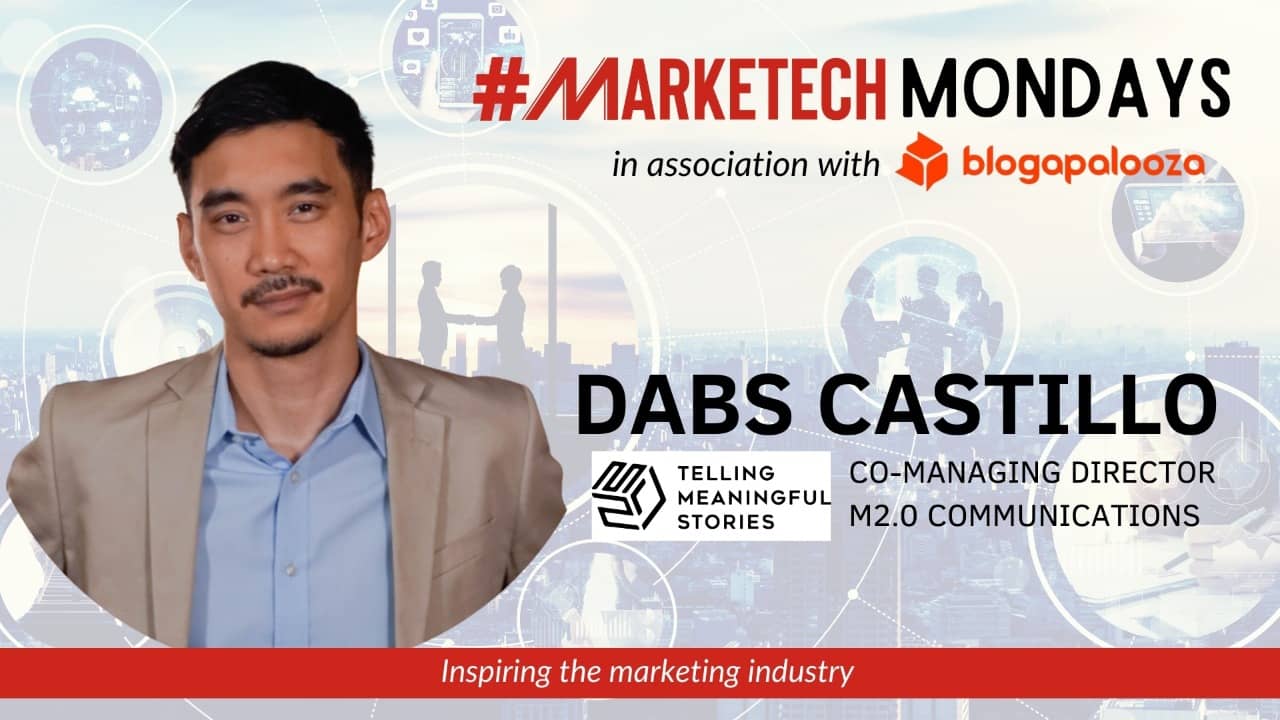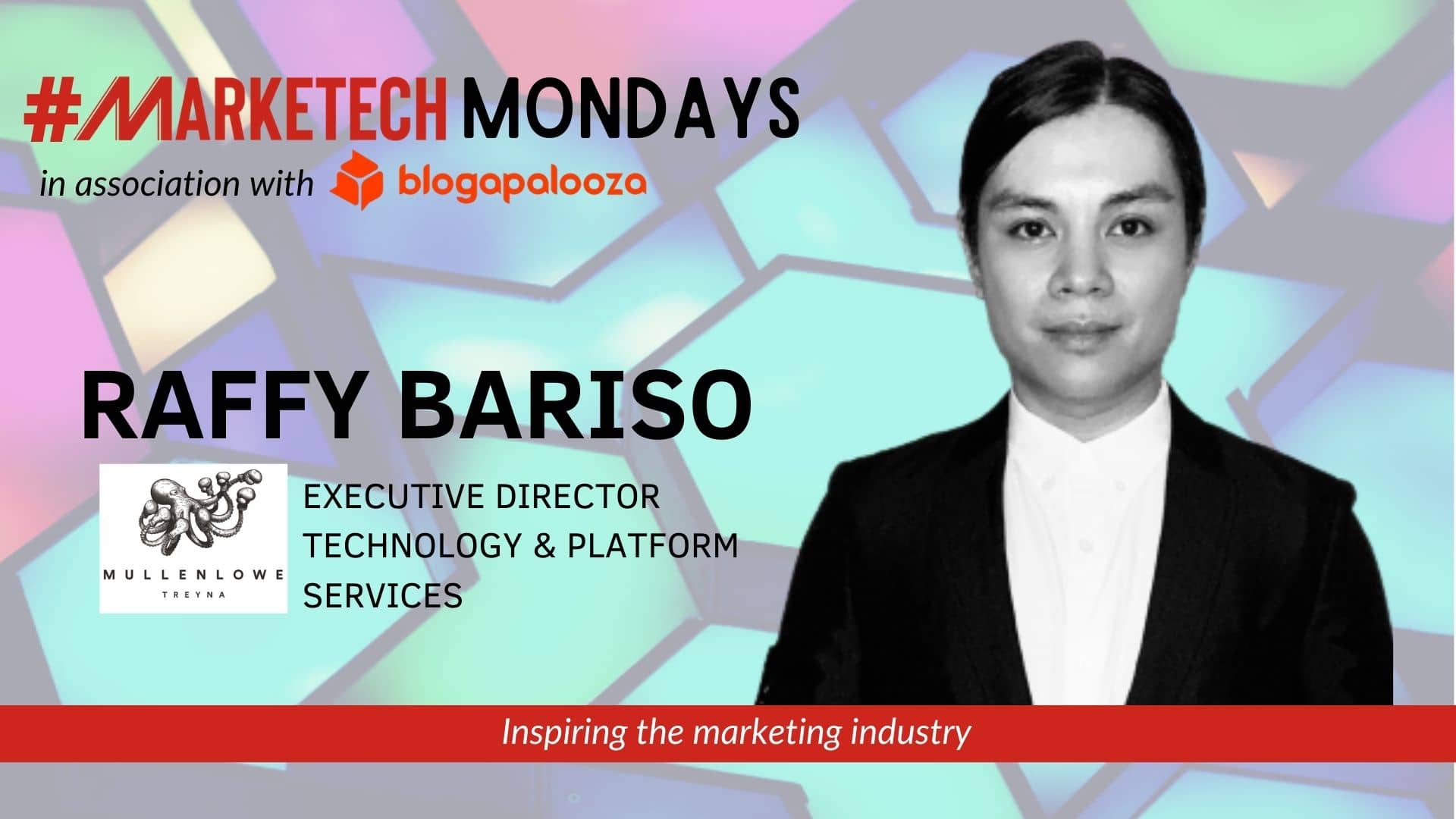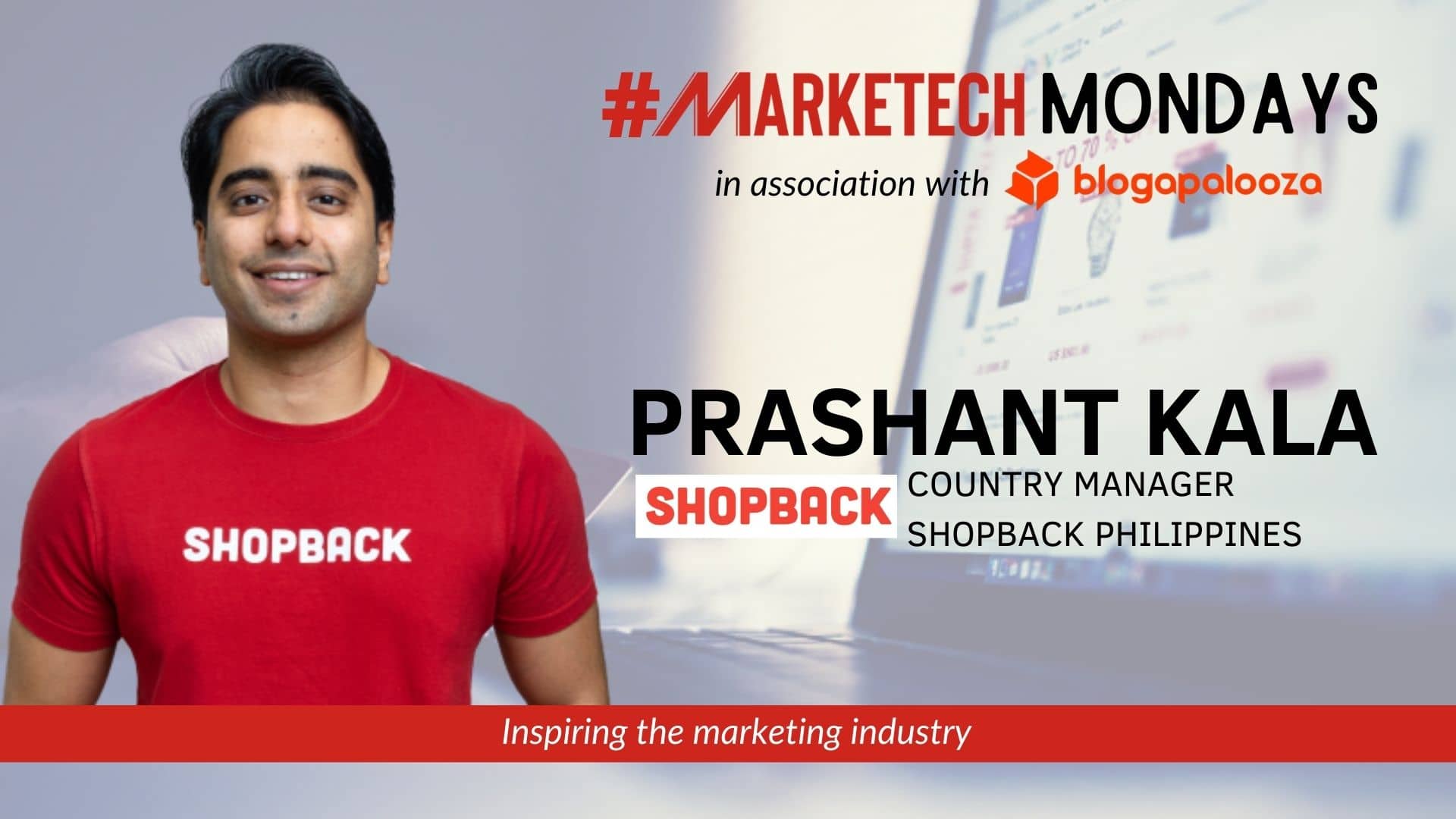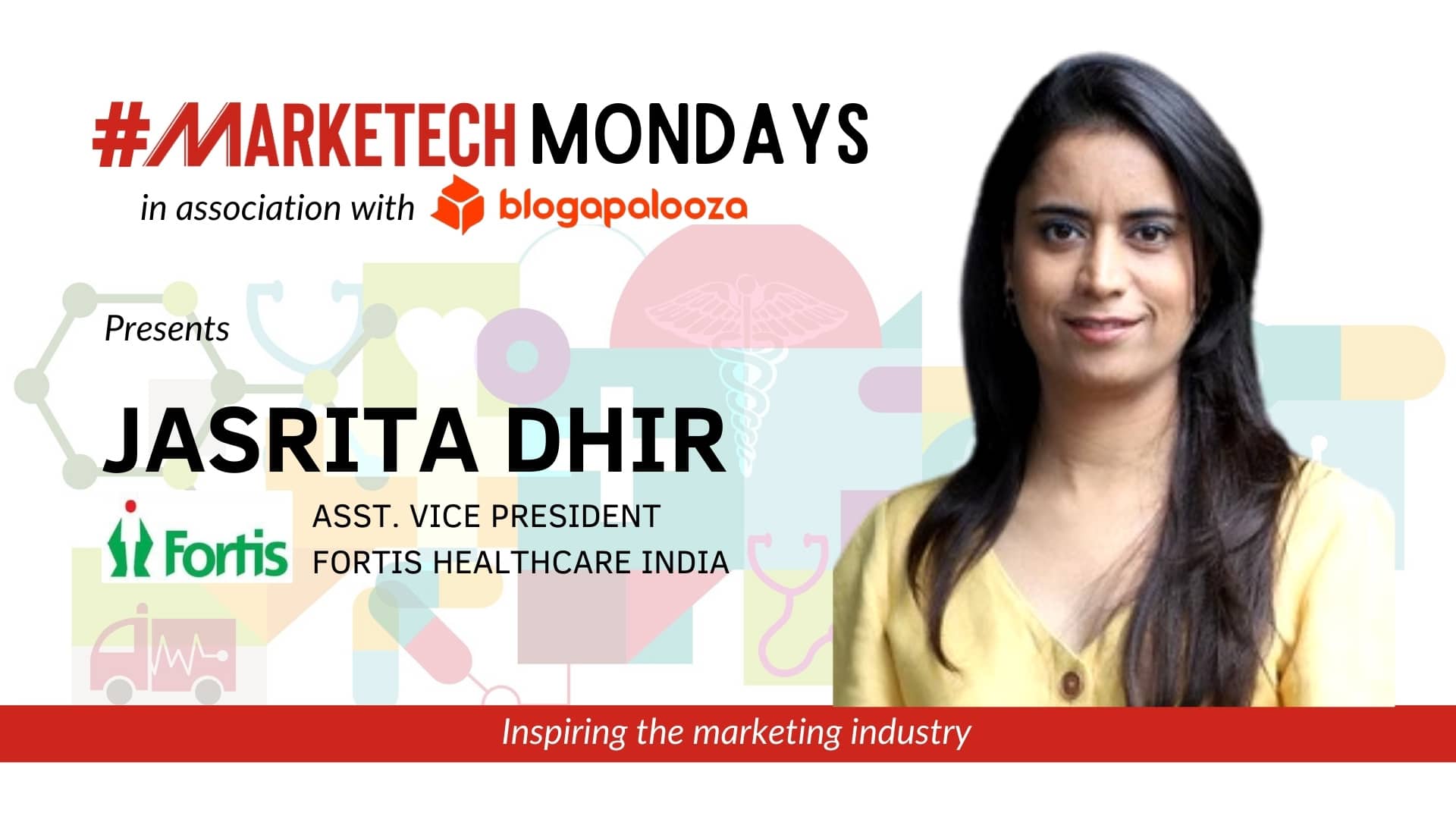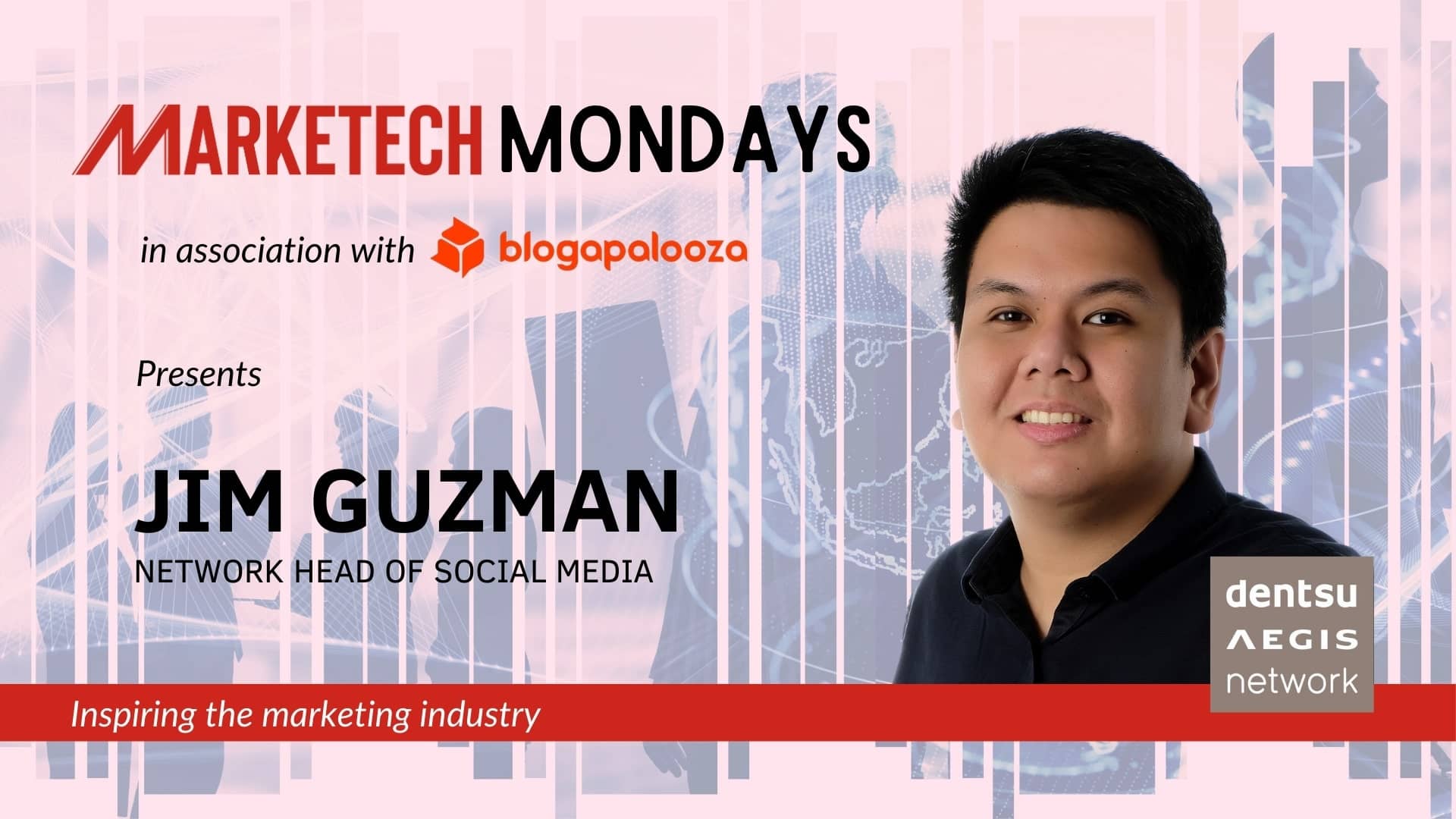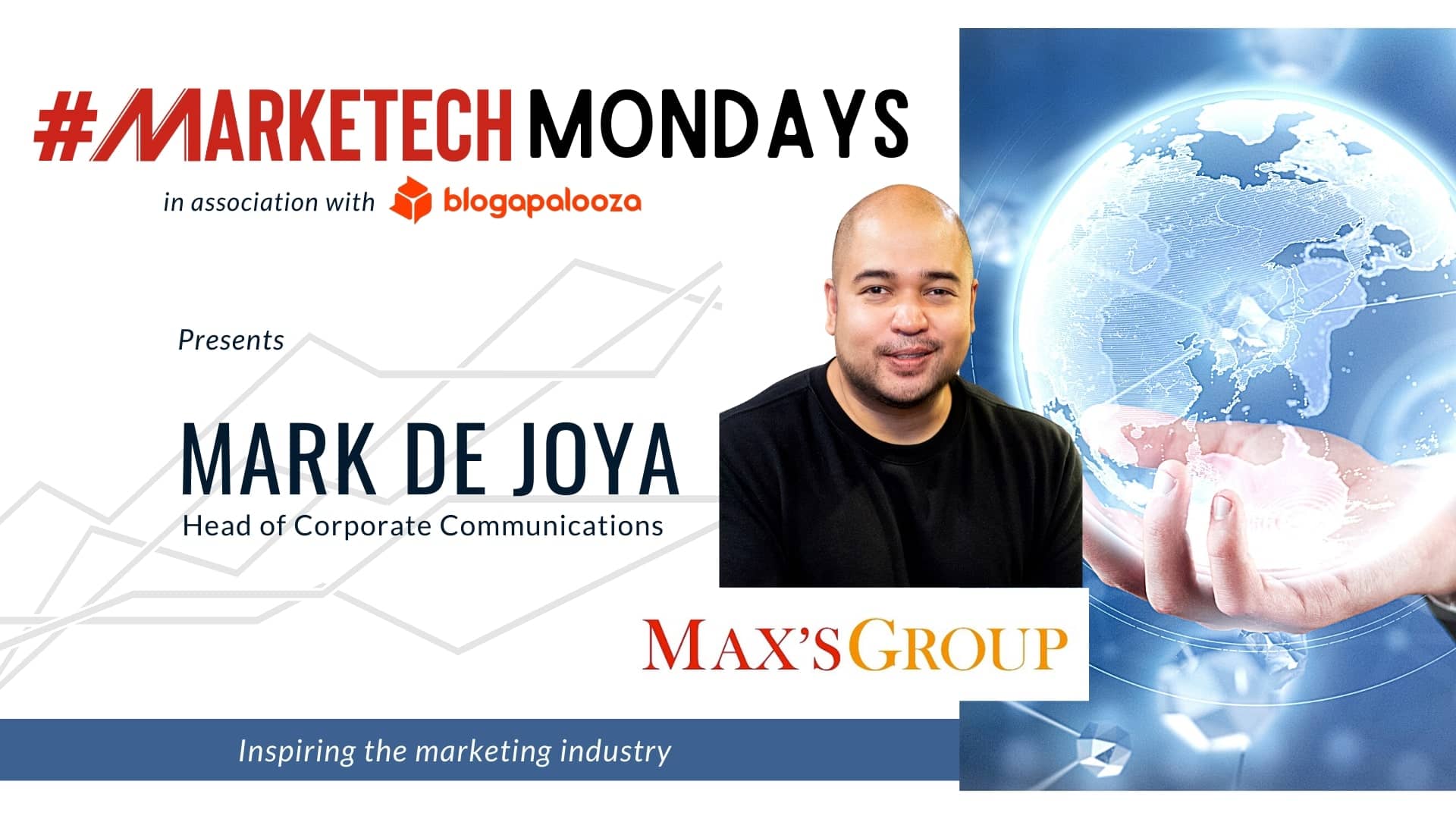In this month’s episode of #MARKETECHMondays, we spotlight a marketing exec from the industry of hospitality management.
Heidi Manabat, the current director for marketing communications at global hotel brand Grand Hyatt in Manila is the perfect example of how passions run deep – if one is someone’s calling, life will bring down its wondrous ways and somehow sway you into the direction you’re meant to be.
Originally having her eyes on business management with an economics degree in hand, Heidi knew she wanted to thrive in the creative side of things.
Heidi recounted in the #MARKETECHMondays interview that while everyone else went to work for banks after college, she immediately responded to where her heart is pushing her – as a marketing officer – at the time for sports clothing and gear brand Mizuno in the Philippines.
After her first dip into marketing, Heidi kind of went back a little, and assumed the role of a real estate officer for none other than the McDonald’s brand in the Philippines.
It was when she decided to re-explore her career options, and braved the journey of fully pursuing marketing that she found her position at Henann Group of Resorts, starting her foothold and esteem in the world of hospitality management.
“I’m a believer that you can try.”
Heidi believes in one simple, but often unpracticed principle – try something to know if you can do it, rather than spend your days wondering of the possibilities.
“I’m a believer [that] you can try. It’s better for you to try rather than just wonder if you could have gone into it, or if you could’ve made it or not,” said Heidi.
This brave mindset is what would later on jumpstart and define her career in marketing for some of the most renowned brands of hotels and resorts.
In 2015, Heidi ‘tried’ and successfully landed the group marketing manager role for Henann Group of Resorts – bolstering the branding and marketing of four resorts in the famous Boracay beach in the country and one in Bohol province.
After this, Heidi became the Cluster Head For Marketing Communications & Public Relations at the Philippine arm of Singapore-headquartered hotel and serviced residences company The Ascott Limited, handling a total of eight properties. Then just before assuming her current position at Grand Hyatt, she also first became Marketing Communications & Public Relations Manager at Crimson Boracay, going back to the island in 2019 to take charge of the management of the resort’s brand awareness and personality.
All this from the strong belief that with a simple step, great things can grow out of the once uncharted territory.
“I don’t come into things afraid,” said Heidi.
When Heidi was a real estate officer for McDonald’s, the transition to marketing was not just a mere shift, whereas she had to go through changes on both job function and industry.
“It was a fun challenge,” she continued. “When I started, [I assessed] what I [needed] to do. Just started reviewing everything, and started looking into what had to be done.”
Heidi shared that the biggest challenge in fact was, maneuvering in a marketing dynamic where traditional and modern practices were still at odds.
Heidi revealed in the interview that in her first foray into marketing in Hennan, a lot of the big bosses in the company were very traditional, and the new practices of marketing, such as influencer marketing were still considered taboo.
“During that time, [it was still] the beginning of [social] media marketing and influencer marketing,” she shared.
On Heidi’s part, she said the challenge was about fast tracking on learning how to take care of media, and looking after influencers: “Learning how to take care of other people for me to be able to make them feel [that what] they’ll experience [is] unique to Hennan, or to the resorts that we’re inviting them to. It was more of the service side”
“It was quite a challenge, but as you know, it all worked out in the end,” she said.
Failures and successes for Heidi
Much of what Heidi considers as success was during her first marketing stint at Henann – an experience to which she refers to as the ‘eye opener’, ultimately making her realize that marketing is something she’s capable of doing.
“[It’s really Hennan]. [It] will always be one of the brands that will always be near and dear to my heart, ‘cause that’s where I made my mark.”
To be specific, the milestone was when she was able to successfully handle a campaign on her own – the grand opening of Henann Resort in Panglao, Alona Beach, in Bohol Philippines and the partnership of Henann and Asian airline AirAsia, where its aircraft had been painted with the Hennan logo.
“That’s where I really grew as a marketing person, and I’m always thankful for all the opportunities, all of the learnings, [the] knowledge, [and all] the skills I was able to hone or learn during that period.”
With failures on the other hand, Heidi believes there is no such thing.
“This may sound weird but I really don’t consider missteps failures,” she shared.
“I feel like they are more of lessons rather than failures. I don’t have anything major but I would say in general, the missteps I’ve made have taught me to be more thorough and detailed about everything that I do.”
Heidi as a leader: “I’m not your boss, I’m here to help you.”
As a manager, Heidi doesn’t believe in the traditional way of leading. Regardless of names and titles, she views team dynamics as how it really is – less of the hierarchy and more of the achievement of one goal.
“I always believe in being considerate, in being firm but being considerate,” she said.
For her, the best leadership style is leading through example.
“I’ll always be the first to [notice instances] [when one would] want us to listen to [something], but [that person] [would do the same thing], or want us to follow [orders], but don’t follow [his own] orders,” explained Heidi.
“For me, it’s very important to lead by example, very important to be compassionate, to be considerate, to be firm, [but] to understand what the other person is going through,” she added.
She also touches on one other important thing – empathy.
Heidi believes that more so in marketing, the practice of empathy is important.
“Empathy is something that you really need in this industry, mainly because in marketing and PR, it’s something that you need to possess. Because you’re dealing with other people’s lives, other people’s feelings, other people’s experiences. You need to be someone that has that ability to understand.”
Advice for budding marketers: “Do not be disheartened easily, people [think] that marketing is an easy task.”
For those wishing to enter the world of marketing, Heidi says to hold your horses on whatever misconception of the field, because what looks glamorous on the onset is far from the real thing.
“My advice is do not be disheartened easily. People may think that marketing is an easy task but what most people don’t realize is that it’s actually one of the most taxing industries cause it’s not for those that are not passionate. It’s not just art but one has to be creative yet logical,” said Heidi.
And when it comes to the bread and butter of marketers – campaigns – Heidi said one has to be well-thought and that it’s important to have that strong belief in your idea.
“If you want to make it in marketing, you have to have the grit, passion, commitment, and vision – you also have to be strong-willed,” said Heidi.
“There will always be struggles but seeing the realization of your work will always be one of the best feelings in the world. So, keep going and keep pushing. Don’t let any challenges or negativity stop you,” she concluded.
Catch our live interview with Heidi today at 6:30 pm PST on our YouTube channel.
This was done in collaboration with Blogapalooza Inc. Blogapalooza Inc. is an influencer marketing company, which manages business-influencer collaborations for conversations across different platforms.


